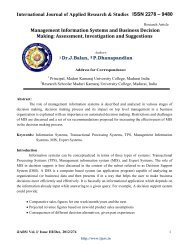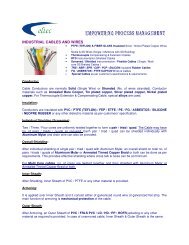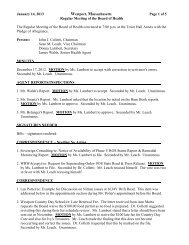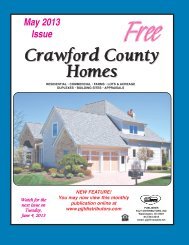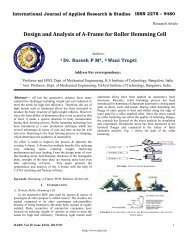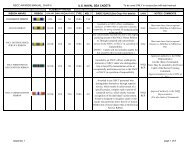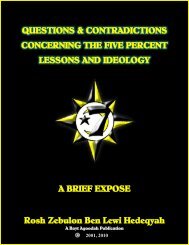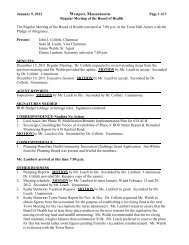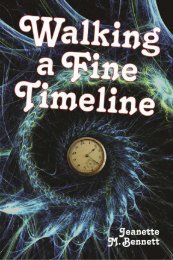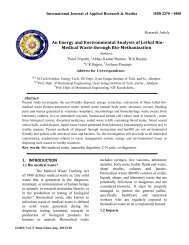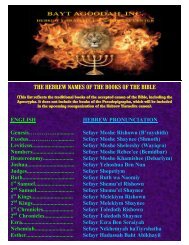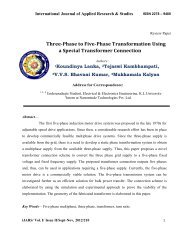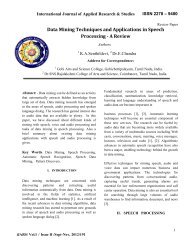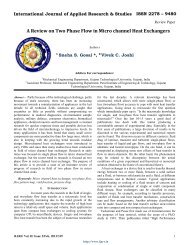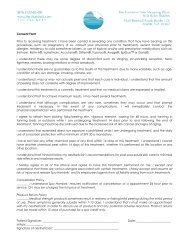Leisurely Motorcycle Riding - Hgsitebuilder.com hgsitebuilder
Leisurely Motorcycle Riding - Hgsitebuilder.com hgsitebuilder
Leisurely Motorcycle Riding - Hgsitebuilder.com hgsitebuilder
You also want an ePaper? Increase the reach of your titles
YUMPU automatically turns print PDFs into web optimized ePapers that Google loves.
<strong>Leisurely</strong> <strong>Motorcycle</strong> <strong>Riding</strong>: A Phenomenological study of the psychology of leisurely - 4 –<br />
motorcycle riding.<br />
However, this is not to say riders who <strong>com</strong>mute to work have been excluded. Instead, this investigation<br />
focuses on understanding leisurely riding.<br />
Leisure<br />
Leisure has be<strong>com</strong>e recognized as a method to control and over<strong>com</strong>e traumatic emotional<br />
experiences (Iwasaki, MacKay, MacTavish, Ristock, & Bartlett 2006; Schneider & WilhelmStanis, 2007)<br />
including stressors associated with negative life events (Hutchinson, Loy, Kleiber, & Dattilo, 2002).<br />
Leisure lifestyle can relate the marketing of riding as a lifestyle in that it includes activities people express<br />
themselves through (Arai, Griffin, Miatello, Greig, 2008). Leisure additionally has been described as<br />
pleasant experiences intrinsically motivated and often optional, autonomous, and self-involving (Hood &<br />
Carruthers, 2007).<br />
The nature of riding, however, presents both autonomous and group participation in simultaneous<br />
situations. Decloe, Kaczynski, and Havitz (2009) report in one investigation that approximately 1/3 of<br />
participants studied engaged in leisurely activity alone. While riding is a process between one individual<br />
and a mechanized vehicle, there is the opportunity for passengers and group rides as well. Therefore,<br />
questions asked related to participants‟ descriptions of what their leisurely riding experience helps provide<br />
an understanding if psychological domains of leisure riding tend to be autonomous, group, or a<br />
<strong>com</strong>bination thereof.<br />
Studies examining motivations, or need, theories for leisure are based upon five <strong>com</strong>mon themes.<br />
“Classical theories basically center around five main explanations: catharsis, <strong>com</strong>pensation, surplus energy,<br />
relaxation and task generalization. Each of these theories purports to predict or explain motivation for<br />
leisure behavior,” (Witt & Bishop, 2009, p. 337). Witt and Bishop focused on highlighting motivations for<br />
seeking leisurely experiences. However, motorcycle riding does not appear easily associated with their<br />
descriptions. Therefore, establishing an understanding for motivation to ride was a foundational question in<br />
this investigation to better relate to these established findings.<br />
Furthermore, the expression and performance of individuals has been a well documented aspect of<br />
physical leisurely experiences. Jackson and Eklund (2002) describe situations of optimal physical<br />
performance, or flow, as "those moments when everything <strong>com</strong>es together for the performer" (p. 133).<br />
Such experiences are documented to enhance self-esteem and continued participation (Stein, Kimiecik,



